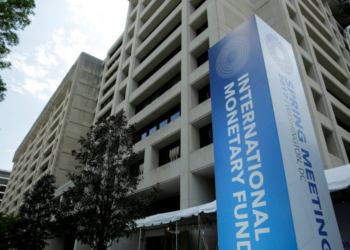Article summary
- The IMF has provided insights into how the AfCFTA can help African countries reduce climate change risks.
- Rising average temperatures are expected to lower gross domestic product (GDP) growth and exacerbate food insecurity in Africa.
- Africa’s large and growing labour force creates opportunities for more rapid growth.
- Increased global competition for commodities and critical minerals may allow some African economies to deepen their pre-existing integration into global value chains as upstream suppliers of raw materials.
The International Monetary Fund (IMF) has said that the African Continental Free Trade Area (AfCFTA) initiative can help African countries reduce climate change risks. The IMF stated this in its departmental paper on the continent, titled: “Trade Integration in Africa: Unleashing the Continent’s Potential in a Changing World”. The departmental paper was released on May 5.
Reviewing climate change effects
According to the IMF, rising average temperatures are expected to lower gross domestic product (GDP) growth and exacerbate food insecurity in Africa. Also, the rising frequency of natural disasters associated with climate change would also be expected to disrupt economic activity at an increasing frequency on the continent.
It is expected that extreme weather events could disrupt global supply chains, create shortages, damage infrastructure, and drive-up prices. Climate change could also affect transportation costs in the future due to carbon pricing or the use of more costly fuels. In addition, geopolitical fragmentation is likely to raise the frequency of shocks to individual bilateral trade relationships directly and indirectly.
Solutions abound within Africa
The IMF paper, however, stated that despite these challenges, regional trade integration in Africa can be an important element of a climate adaptation strategy in any of the following ways:
- Regional trade integration could boost countries’ resilience by reducing their overreliance on sectors that are at increased risk of being adversely affected by climate change-related natural disasters.
- By facilitating the flow of goods across borders, regional trade integration would help countries diversify sources of climate-vulnerable products.
- Regional trade integration could open opportunities for increased regional trade related to climate-related infrastructure, services, and finance.
- Increased global competition for commodities and critical minerals may allow some African economies to deepen their pre-existing integration into global value chains as upstream suppliers of raw materials.
- The AfCFTA presents African countries with an opportunity to diversify their export destinations, import sources and patterns of cross-border value chain integration by boosting regional trade.
- Under the AfCFTA, most African economies would see a decline in the concentration of their export destinations, with generally larger declines for countries that currently have a relatively high export concentration. A greater diversity of export destinations would in turn increase economic resilience.
Africa’s Future in Numbers
According to the IMF, a large and growing labour force creates opportunities for more rapid growth, complemented by a falling dependency ratio that creates room for more domestic savings.
The Fund provided some numbers that could work to the advantage of African countries in the fight against climate change and its emergence as a leader in the global energy transition.
- Africa’s working-age population (ages 15–64) is projected to rise from about 800 million in 2022 to more than 1.5 billion by 2050 (and peak only later this century).
- The median dependency ratio (the number of the young and the elderly relative to the size of the working-age population) is expected to decline from 0.77 currently to 0.60 by 2050.















.gif)







This initiative is only on paper. It was not intended to work. Or how do one explain the difficulties experienced in crossing the Egyptian border by sudan returned. Africans find it difficult to respect well intentioned policies. Niger Republic prefer to buy cement from China instead of buying from nearby facilities in Nigeria. Loaded vehicles stay days at borders on an effort to cross to deliver needed products. Africa needs to rethink. If we do not consume our products and collaborate the more, then we will continue to wallow in poverty and debt